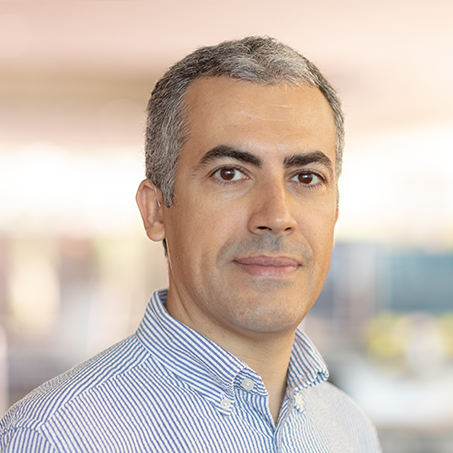
Program Affiliations
Center of Excellence
Biography
Professor Carlo Liberale leads the Vibrational Imaging Lab at KAUST, where he develops advanced label-free chemical microscopy techniques, focusing on coherent Raman scattering. His group also pioneers the use of two-photon lithography to fabricate miniaturized optical systems.
He has authored over 160 peer-reviewed publications and holds multiple patents. Professor Liberale serves on the editorial boards of Scientific Reports and PhotoniX Life. He is a Senior Member of both the Institute of Electrical and Electronics Engineers (IEEE) and Optica, recognizing his contributions to optics, spectroscopy, and biophotonics.
Notably, Professor Liberale is ranked among the top 2% of scientists worldwide in optics, according to standardized citation indicators developed by Stanford University and Elsevier.
Research Interests
Professor Liberale has devoted his career to advancing the frontiers of optical imaging and photonic microfabrication for biomedical and environmental applications. His research focuses on label-free chemical imaging, particularly through coherent Raman scattering techniques, which enable nondestructive, high-resolution visualization of molecular composition in complex samples. These methods are instrumental in investigating cellular biochemistry and have been applied by his group not only in disease diagnostics but also to assess environmental pollution, such as detecting and characterizing microplastics and microfibers.
His group also pioneers the development of miniaturized photonic systems using high-resolution two-photon lithography. By printing micro-optical elements directly onto optical fiber facets, his team creates compact, multifunctional devices for beam shaping, optical manipulation, and in vivo imaging — extending the reach of photonic technologies to previously inaccessible environments.
Through the synergistic integration of nonlinear optics, microscale engineering, and chemical imaging, Professor Liberale’s research contributes to the development of next-generation optical tools aimed at improving diagnostics, monitoring environmental contaminants, and deepening our understanding of biological and ecological systems.
Education Profile
Ph.D., University of Pavia, Italy, 2004
M.Sc., University of Pavia, Italy, 2000
Publications
Research Areas
- Electrical and Computer Engineering

